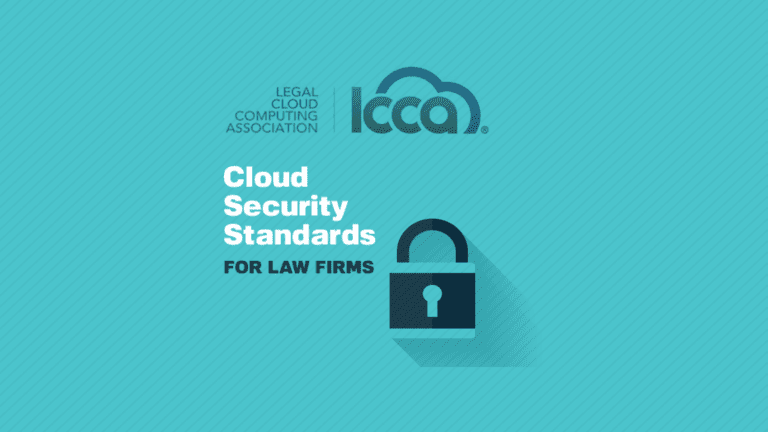Cybersecurity and protection of privileged client data are vital concerns in the legal industry. The ABA Model Rules impose a duty on lawyers to use reasonable efforts to prevent unauthorized access to client data and recently made related changes to address the advances of technology.
Today at ABA TECHSHOW, leaders from six legal cloud computing providers – known collectively as the Legal Cloud Computing Association (LCCA) – released 21 standards of cloud security crafted specifically to assist law firms and attorneys.
The Standards are set.
This Version 1.0 of the LCCA Security Standards is public for all to review here.
In February 2016, the association’s initial draft of the cloud security standards was published and opened to a 30-day public comment period.
The standards were reviewed by an expert panel of advisors including: Craig Ball, board certified trial lawyer, certified computer forensic examiner, law professor and electronic evidence expert; Chad Burton, Burton Law LCC and CuroLegal; Adriana Linares, LawTech Partners; Kelly Twigger, ESI Attorneys LLC and eDiscovery Assistant; Antigone Peyton, Cloudigy Law PLLC and member of the Sedona Conference; and Jonathan Redgrave, Redgrave LLP and Chair Emeritus at The Sedona Conference Working Group 1.
“We’ve received feedback on these standards from attorneys, bar associations, law societies, law firms, and leading technology companies,” said Jack Newton, President of the LCCA. “Each gave their support for the LCCA’s efforts to organize standards that help with law firms’ security.”
“There’s a reason we’re referring to this as ‘version 1.0’ of the LCCA Security Standards: technology must constantly evolve to meet new threats, and so too will these standards. The LCCA will help the legal industry stay prepared and secure,” added Newton.
Nextpoint’s Role
Our CEO, Rakesh Madhava, and attorney-in-residence Julianne Walsh helped draft these guidelines in accordance with best practices employed at Nextpoint and outlined last May in our joint cybersecurity webinar with Clio.
“The LCCA believes that sophisticated technology to secure data and prevent cyber-attacks is now available to every law firm regardless of size,” Madhava said.
The LCCA is becoming a central authority on cybersecurity in legal technology. The association will continue to research and adjust the Cloud Security Standards to meet emerging concerns surrounding confidential information.





